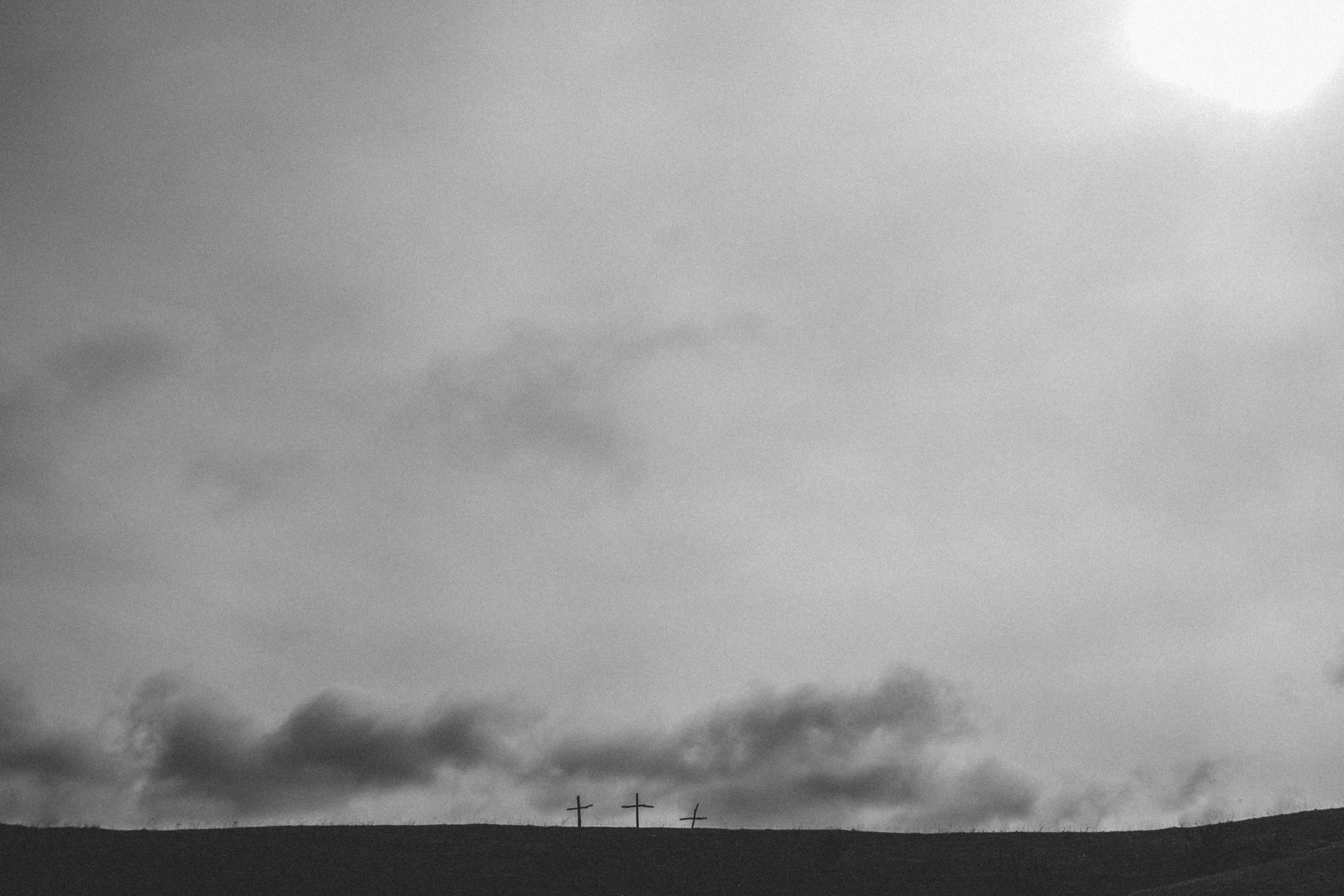
Easter: The Covenant Plan of God Unveiled
As Easter draws near, what does it mean to live a life transformed by the gift of God’s Son?
Easter is such a pivotal time in the Church calendar. In fact, to even say that is a gross understatement! Tom Wright, a New Testament and Early Church Scholar, puts it this way in Surprised by Hope: “Take away the stories of Jesus's birth, and you lose only two chapters of Matthew and two of Luke. Take away the resurrection, and you lose the entire New Testament and most of the second-century fathers as well.”
Words: Jo Leutton Read: 10 - 20 mins Published: 20 April 2019
Yet, for most of us, our preparations for Easter pale in comparison to our preparations for Christmas. I know that in my house, the decorations and tree go up as soon as possible. I get accused of scroogy grinch-ness when I suggest that we wait until it’s at least December! However, when we turn the calendar a few pages over, we pay almost no attention to the lead up to the most crucial point in our Christian year. Sadly, the people most prepared for Easter are the supermarkets: they’ve got hot cross buns out by New Year’s Day!
Many of our denominational cousins do prepare themselves well for Easter. Many higher church traditions than our own will observe Lent, a period of forty days that leads up to Easter Sunday. Forty days, to remind us of the forty days Jesus spent in the wilderness. Traditionally marked by fasting, repentance, denying one’s self, prayerful reflection and material generosity, the forty days was also to remind us of the lead up to Christ’s suffering on the Cross. It comes as an interesting turn that many younger, millennial Christians are re-examining these ancient traditions and liturgical practices, searching for meaning and markers that give significance and insight to life and the passage of time.
That’s all well and good but practising religious traditions and ceremonies for the pure sake of making sure we do them, is not something on which we place a high value. Empty religious practices got the temple officials and priests in trouble in Jesus’ day (have a read of Matthew 25:23), and we know that simply trying to be ‘spiritual’ for the sake of being spiritual doesn’t yield lasting fruit. Finding the deeper invitation to intimacy with God is always the preferable way of observing such practices.
But what should we do? And how do we find a way of preparing for and celebrating Easter that reflects our desire for covenant relationship, and living unveiled before our great God? We shouldn’t be so presumptuous to reject what has been good enough for a few thousand years of church history. We should also not fall for the trap of thinking that participating in a liturgical drama will automatically deepen our personal intimacy with God.
Instead, we can come to Easter with a sense of joyful anticipation, preparing to meet with our Saviour in a personal and special way, knowing that there is power in the process. However, we can also come in a way that reflects the life that Jesus has poured into our community – a unique blend of tradition, innovation, reflection and passionate pursuit of God’s presence.
We start by acknowledging the centrality of the Cross to the entirety of our Christian life. Without the death, burial and resurrection, there would be no way for us to enter a covenant relationship. The events of Easter rendered the old Jewish temple worship obsolete, and the destruction of the temple less than 100 years later ensured there was no way back to it if we wanted to go there. Hebrews tells us that the sacrifice of sheep and goats was sufficient to cover over sins for a period of time, but not sufficient to deal with sin once and for all. That was the sacrifice that Jesus’ made on our behalf. Taking time to reflect on this, to allow the gravity of the price that was paid for each of our lives, should be both a sobering and joyous occasion. We should let our minds be humbled by the sheer love and extravagance of God, in the sacrifice of Himself on our behalf. It should capture us in a way that we can’t even quite put into words. It should quiet our anxious thoughts and wayward desires, knowing that everything that seeks to break down relationship, intimacy and life, all these things were dealt a death-blow on that hill two thousand years ago.
Likewise, with our minds humbled, our hearts should leap and shout with joy, like a lame man who has been healed, because the promise of the One who would bring life has been realised! The hope of the ages has come, and the way was made to live again! Our hearts should be bursting with knowledge of the love of the Bridegroom, the One who is coming for us, who has prepared a place for us. This requires us to take time; probably more than a 90-minute service on Good Friday or Easter Sunday. It should sit in our hearts and minds like a looming iceberg and an anticipated commemoration, at once both sinking our brokenness and celebrating our new life. I think that each one of us should weigh up what that process of gratitude should be like. To do anything less with the Cross would be to tear the heart out of our faith.
However, I think to fully grasp the covenant faithfulness of God that was revealed at Easter, and to engage with the offer of an unveiled life toward our God, we can’t stop on Good Friday or even Easter Sunday. To do so would betray the body that the beating heart of the Cross brought to life. The events of that weekend were in a way a precursor to what would come next. Jesus’ life, death and resurrection were both a unique act at the central point of history, but also the first event in a long line of those who would follow. His redemptive work was unique to his life and nature as the Son of God. He was also the first fruits of the new creation, the ‘to-be-resurrected’ ones, the anointed ones, the covenant-participating, face-to-face with the Father talking, kingdom-empowered priestly living ones. Us! However, that wasn’t all fully played out on that first Easter weekend.
The Cross was the door that opened the way for this to happen. With the curtain torn, with the veil between God and humanity removed, the way was made for all of us to come into His presence with boldness, confidence and assurance. But the way was also made for God to dwell with humanity. The Cross shows us the way back to God and God with us, but the day of Pentecost showed us the way God comes to the world through each of us!
Because of that, I think a powerful way that we remember Easter isn’t simply a forty-day fast leading up to Easter Sunday. By all means, jump into the season of Lent with all you have, I know you will be blessed. But to live out an unveiled life of radical surrender, generosity, service and love, then let Easter take you on a journey into intimacy with God through life in the Holy Spirit. The Spirit came as the ongoing Emmanuel, God with Us. Holy Spirit is now the marker of the new covenant; He is the one that marks those who belong to the people of God. Paul made it clear to us in 2 Corinthians 3, that the way people know God, keep His commands and live out His covenant promises, is by the Spirit.
The Spirit was the person who led Jesus through His life: Jesus was the first person on whom the dove remained. So, Holy Spirit is the one who will empower the unveiled life that we are called to live. If we attempt to reach God by our own best efforts, we will fail miserably. However, if we pursue wholeheartedly the one whom Jesus said would come to teach, comfort, guide and remind us of all that Jesus promised, then we will not just act out the traditions of Easter, but we will live out God’s desired plan of Easter. Easter made a way for us to be with God, and Pentecost made a way for God to come to all people in all nations. Pentecost birthed the Church that would take the reality of the crucified Messiah, that is, the reality of Easter, and bring a visible demonstration of the freedom that it bought. Easter without Pentecost gives Christians life everlasting in God’s presence, but Easter with Pentecost sees God’s presence break into the here and now.
So, don’t worry if this is the first time you’ve thought about Easter this year. Worry more if you’ve spent any time living out the reality of what that first Easter provided for us. And when you realise that there’s no point worrying about it, invite Holy Spirit to fill you afresh with His presence, the presence of God. Let prayer and worship be your response this Easter, and let Pentecost be your daily experience.
Check out the podcast
